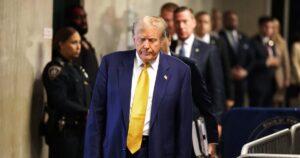
If the low-level smugglers at the Pleasure Palace exist in ambivalent relation to the industry, Flaco and Kingston are more firmly ensconced. They have grown comfortable with violence, are more openly acquisitive, and therefore are more distasteful characters, even if De Leon openly admits that he is “charmed” by their charisma. They both speak incessantly of cash: “Motherfucker, I’m making it! $1,500, $5,000, $10,000. Goddamn!” Kingston boasts. When De Leon asks what the most important thing to know about the smuggling business is, Flaco replies, “Money, money, money.” But their lives also possess a tragic dimension. De Leon cites research on how former child soldiers like Kingston “have difficulties in controlling aggressive impulses and have little skills for handling life without violence.” Moreover, both Kingston and Flaco are caught between the Scylla of their obligations to high-level gang members and the Charybdis of their criminal records in the U.S., making it difficult for them to contemplate leaving the world of smuggling, even as it grows increasingly violent and unstable in the wake of Programa Frontera Sur. “It’s like a tattoo,” Kingston laments of his life in “el show,” his name for the smuggling industry. “All that you do in your life is recorded on you like a tattoo.”
How does one adequately represent the perpetual motion machine that is the illicit migration of millions of people through the Western hemisphere? How to sketch the range of actors and forces—governments, nongovernmental organizations, transnational gangs, drug cartels, climactic patterns, capital flows—that shape clandestine movement? De Leon is admirably up-front about the representational limitations of any single project, even one based on such extended and immersive work. In a world where “you never know the truth about what is happening,” as one smuggler puts it, the best any observer can hope for is to capture a “blurry snapshot of a fragment” of the whole picture. “The diagrams we draw will always be missing pieces,” he writes.
And so certain perspectives will inevitably be sidelined. In his previous book, for example, De Leon mostly focused on the experiences of men crossing the U.S.-Mexico border, which largely kept him from learning about the ubiquitous sexual assault of women on the migrant trail, except “through the eyes of men who bore witness.” There are similar perspectival elisions in Soldiers and Kings. For one, De Leon informs us up front that, for safety reasons, he decided to never physically travel with smugglers as they moved migrants north, which means that the book doesn’t illuminate much about how migrants encounter their guias while making the 1,600-mile journey through Mexico. When De Leon writes of how Flaco experiences “the thrill of calling the shots and being a boss” on the migrant trail, where he is “an authority figure, an expert, a king,” one is left to imagine how this might be experienced from the other side. De Leon also tells us that he avoided smugglers who gave off a “bad vibe,” especially ones he suspected of being implicated in abuse and assault. As a result, the violent targeting of migrants that is so ubiquitous in el camino is largely rendered off-stage, entering the narrative solely in the comments of the characters De Leon has come to trust.






